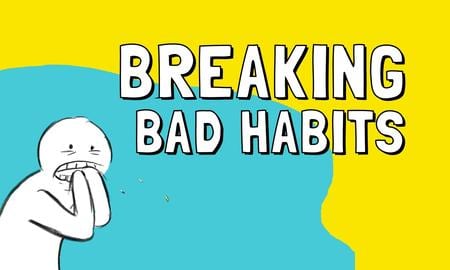“We need to think differently to shift our paradigms to a new, deeper, “inside-out” level” – Stephen R. Covey
In the Seven Habits of Highly Effective People, Stephen R. Covey describes habits as “consistent, often unconscious patterns which regularly, daily express our character and produce our effectiveness or ineffectiveness”.
Who we are and what we become is a direct result of our habits. It is in the realm of patterns that our character is born, nurtured and outwardly expressed. What we see from the outside is a direct reflection of those deeply embedded habits that have gradually, steadily and consistently ingrained themselves into our psyche. Our behaviour is therefore informed by these practices, which with time, become so deeply ingrained into our minds that changing them is like attempting to break mountains with bare hands.
Breaking free from these deeply embedded habits is a tall order, mainly when acquired over an extended period. The longer it takes to learn certain practices, the more difficult it is to break them. And this is not necessarily a bad thing, especially if the habits acquired are positive. Positive habits should be encouraged, even developed where they are lacking.
According to Mike Bressica, success comes from behaviours, which start as thoughts. To change your habits or actions, you will need to have different ideas. What occupies your mind, your thoughts; propels you to behave in a certain way. If you don’t like the results of your behaviour, all you need to do is to change your thoughts.
Renewing or shifting from our current thoughts to those that we desire brings about transformation or change in our lives, known as a paradigm shift, adopting a new way of thinking, of doing things, of behaviour.
The good thing about habits acquired over time through learning, nuances, brainwashing and experiences is to replace them by changing the thought patterns that fostered them in the first place.
To replace negative, self-limiting thought patterns, which Mike Bressica calls “mental patterns of failure,” we must set as a first goal to reduce the impact of these patterns. And this can not be done overnight. Just as it took some time to acquire these mental patterns of failure, it will take time to release them and replace them with ‘mental patterns of success.’
Like so many of us at a behaviour changing crossroad, on one side lay the old self-limiting patterns of failure, and on the other, the desire to release these negative patterns and replace them with those that would propel us into a transformed life of doing good.
Highly successful people are those who rid themselves of their patterns of failure by brushing off distractions. When you have no habit of failure limiting your progress, you can overcome temporary setbacks at the thought level. Since the battle for success is won or lost at the thought level, your success or failure is what makes you successful or unsuccessful. Success comes more naturally when you learn how to control your thought patterns. As Bressica says, “if you master the art of thought control, you will not be tempted to act opposite to what you know is best. You can keep fear at a minimum. Doubt is nowhere to be found.”
But how do you unlearn limiting thought patterns that you have picked up from childhood? How do you break down inscrutable blocks of harmful habits distilled and cemented into your psyche since childhood? To merely tell you to change your paradigm would be as vain as saying we can feed a hungry person without providing food to eat. What we hear, see, experience or sense has a direct bearing on the formation of our habits, which are informed by thoughts and then acted out in the form of behaviour.
Thoughts form the foundation of our habits. These habits, depending on their nature, in turn, inform our actions or behaviour; and success or lack of it solely depends on the actions we take. To take that crucial first step in starting your own business, you must, first of all, unlearn the employee mentality and start seeing yourself as a successful entrepreneur.
But to achieve this paradigm shift is no mean fit. What with years of being told to study hard so that, when you grow up, you will get a good job? To break away from this mould of thinking and start seeing or thinking yourself as a successful business person requires much more than positive affirmations such as ‘I can do it.’ If ‘I can do it’ is out of tandem with your thought pattern, then, try as much as you will, you can’t do it.
I believe with all my heart that if you can think it, you can do it. Your thoughts define the kind of person you become. Countless times we blame external circumstances. However, the core cause of our failure will be in our thought patterns.
© Wordscapes® (David Turner). All Rights Reserved.




